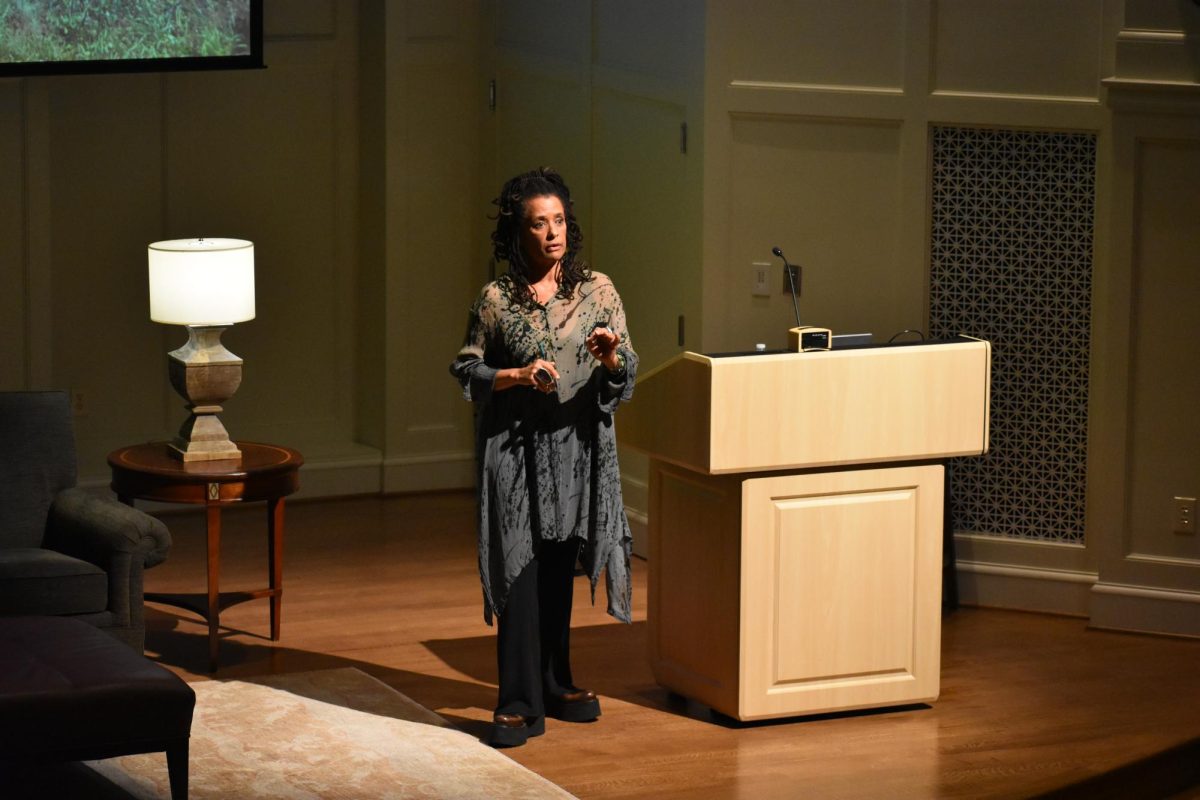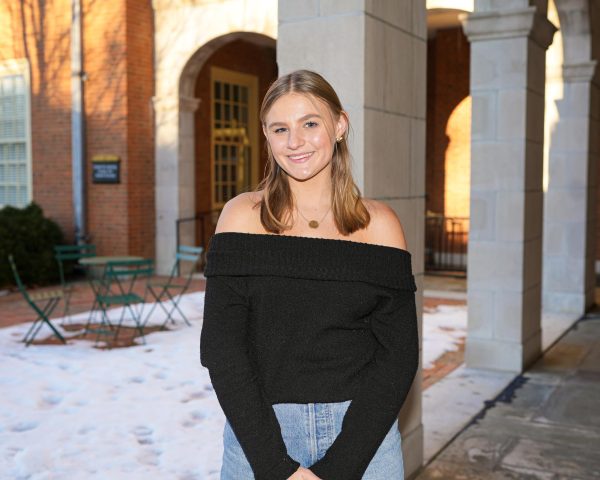Wake Forest hosted renowned environmentalist and storyteller Dr. Carolyn Finney to lead a conversation about privilege, belonging and the exclusion of Black voices from environmental policy. Her visit to campus on Nov. 9 at the Porter Byrum Welcome Center is the latest initiative funded by the 2018 grant awarded to the university by the Andrew W. Mellon Foundation.
A Fulbright Scholar and author of “Black Faces, White Spaces: Reimagining the Relationship of African Americans to the Great Outdoors,” Finney’s work centers on how privilege shapes environmental policy and how Black people are excluded from conservation initiatives.
Finney encouraged the audience to think critically about the connection between environmental justice and the suppression of Black and Indigenous voices. She also discussed how her advocacy work is largely inspired by her family’s experiences with environmental suppression.
“Who are we that do the remembering, the archiving, the writing and the speaking about Black people on the land, and what does it cost in order to do that?” Finney asked at the beginning of the lecture.
To illustrate her point, Finney drew heavily upon her family’s history. In 1957, Finney’s parents took jobs as full-time caretakers for a wealthy family’s 12-acre estate in Westchester, N.Y. Finney displayed a photograph of a cherry tree on the estate, which the audience looked at with admiration.
Finney emphasized the unwavering loyalty her parents had shown to the land, where they worked for five decades maintaining the swimming pool, ponds and many vegetable gardens that swept across the estate. However, according to Finney, a Conservation Easement from the Westchester Land Trust sent to her parents in 2003 “erased [her parents] from environmental history” by failing to acknowledge their placement as caretakers of the estate.
“While the letter profusely thanked the new owners for their conservation efforts, there was nothing in the letter thanking my parents for serving the land for over 50 years,” Finney said. “And just like that, they were erased from environmental history.”
Finney then displayed a more recent picture of the estate. In this photo, the cherry tree was notably absent. This symbolic difference between the photographs represents the erasure of Finney’s family and their dedication to serving the land.
“Land is never just about land,” Finney said. “It is about economic and political power, and it is about the right to say that you belong.”
Finney said her family’s lost history reminds her of the marginalized communities, such as Black and Indigenous peoples, who had long occupied outdoor spaces in the United States, yet never earned recognition or a place in the narrative that shapes our understanding of the natural world.
“There are people who have labored and loved and been on the land,” Finney said. “What gets lost beyond simply the story when we do not dig deeper into who they were?”
In the Summer of 2021, Finney was able to return to her family’s land and plant a new cherry tree through a three-week residency with the New York Botanical Gardens. For Finney, this restoration symbolizes the action of creating a new story to which we all are accountable.
“The story might be my family’s, but this is the story of all of us: the conservationists, the people who would afford to buy the land, those who were on the land before us,” Finney said. “It is not simply a Black story — it is a human story that we all have something to gain from.”
Politics professor Dr. Melissa Harris-Perry said that Finney’s research raises interesting questions about belonging and land ownership.
“Carolyn Finney inverts our notions of who belongs and who the land belongs to,” Harris-Perry said.
Associate Dean for the Engaged Liberal Arts Dr. Eric Stottlemyer said that Finney’s storytelling abilities and expertise provide important insight about environmental justice.
“Carolyn Finney is an expert at using storytelling to get at the critically important issue of human relationships to the natural world,” Stottlemyer said. “There are incisive intersections between historically marginalized communities and the environmental destruction that goes on in those spaces. Carolyn Finney is excellent at articulating those issues and allowing the broader conversation about sustainability to be more inclusive of marginalized communities.”

















